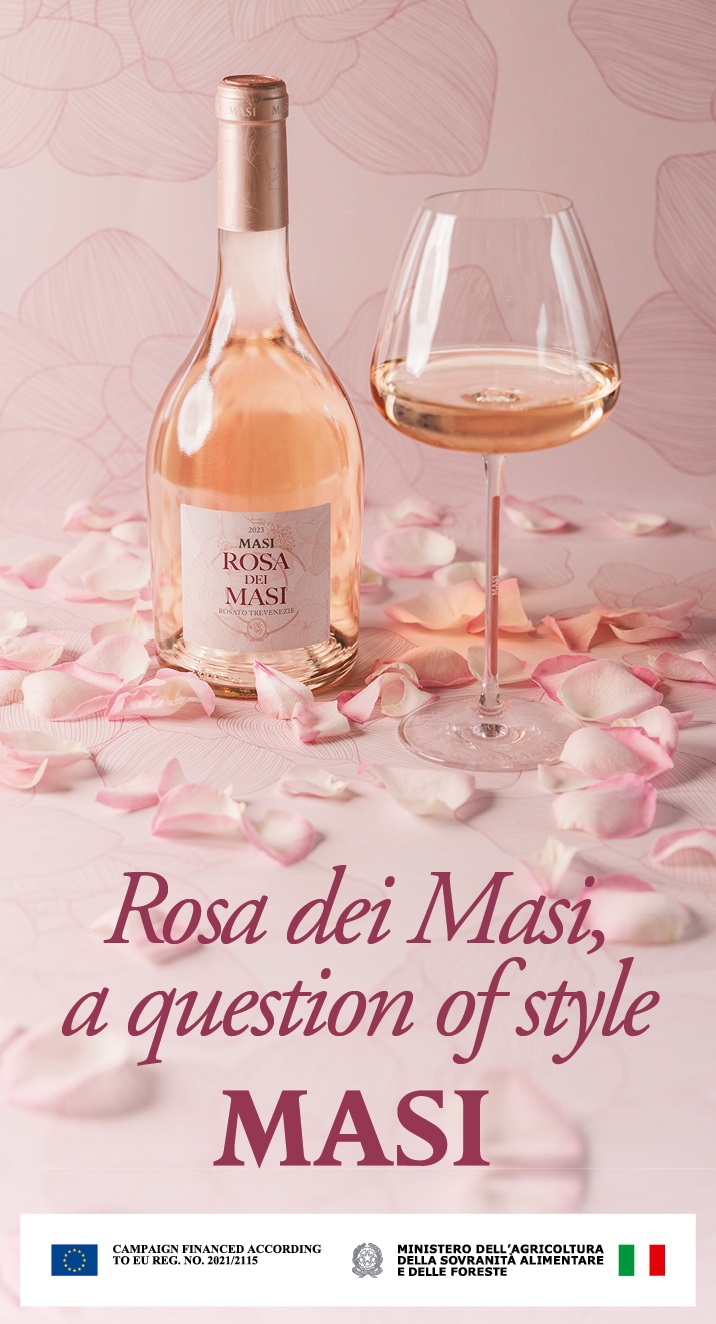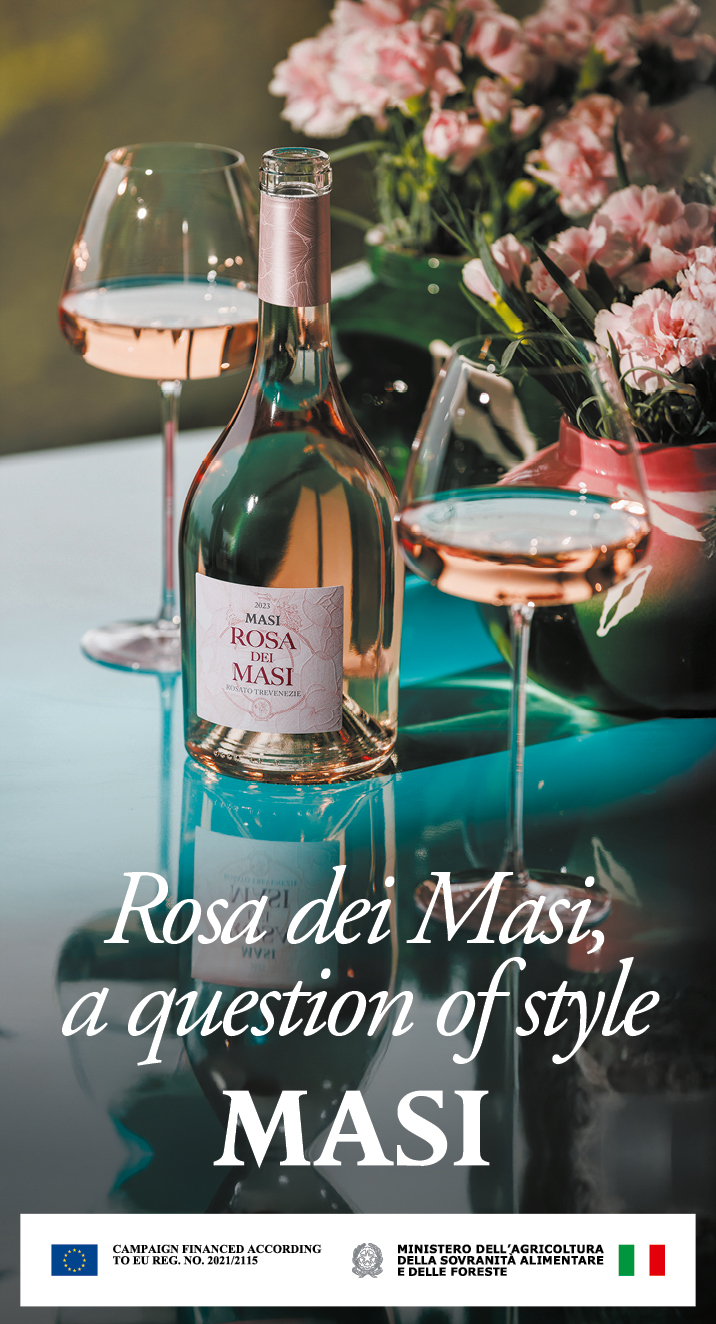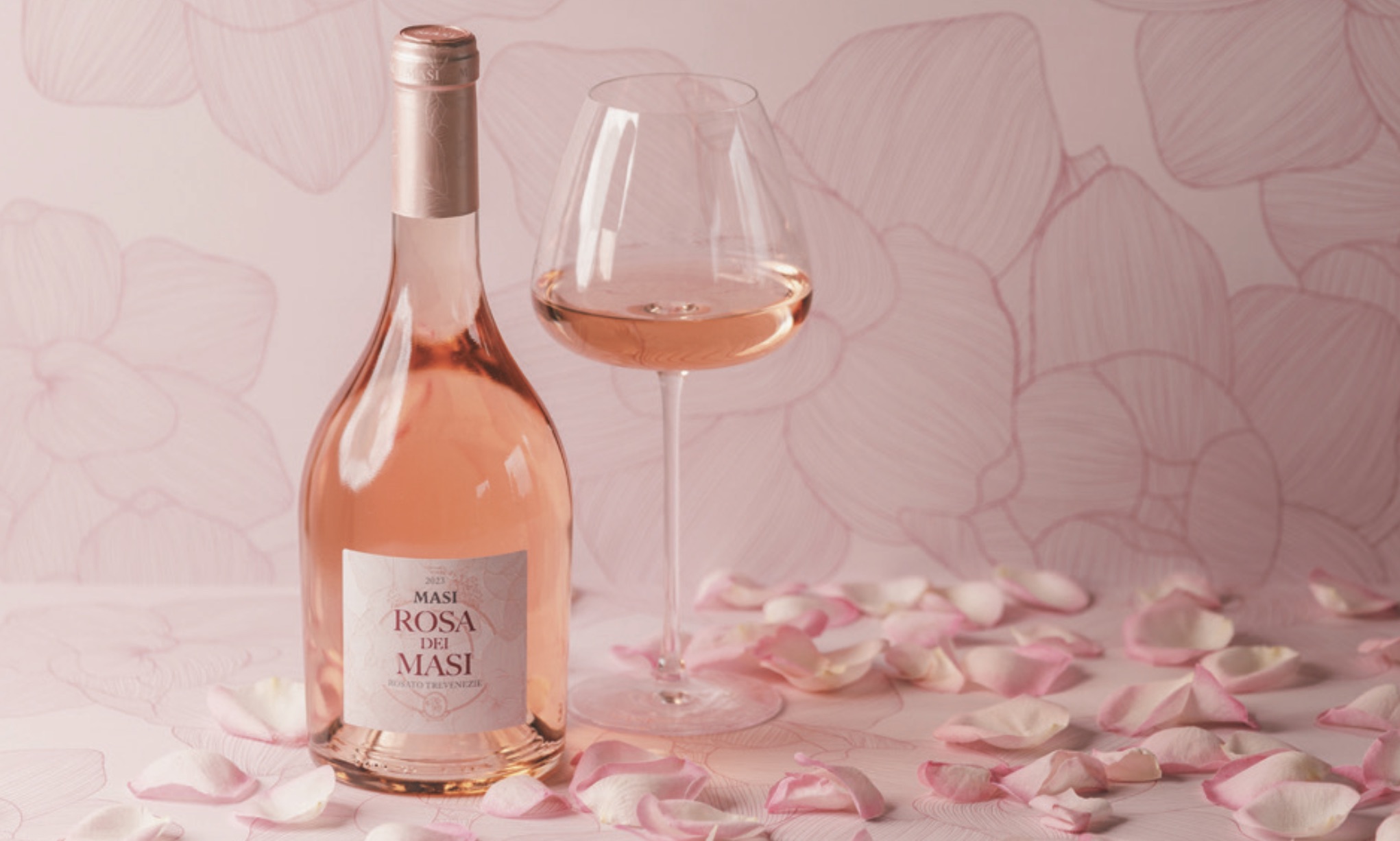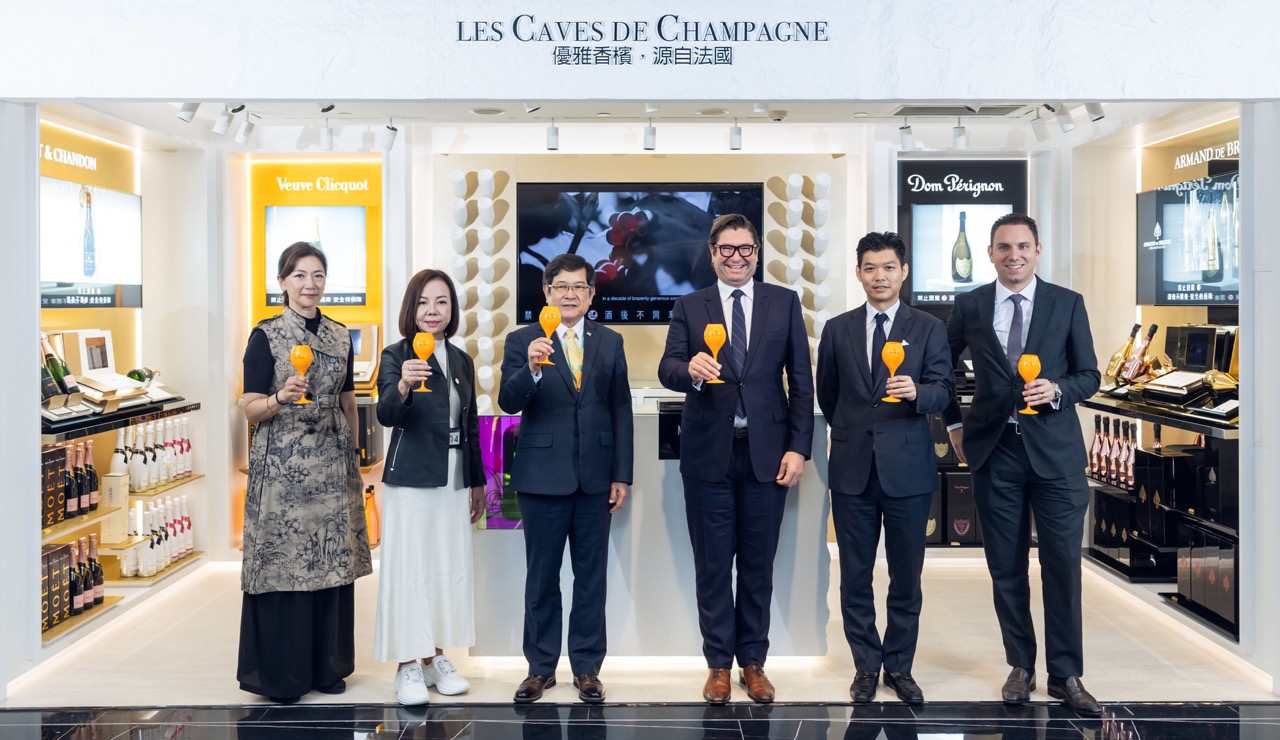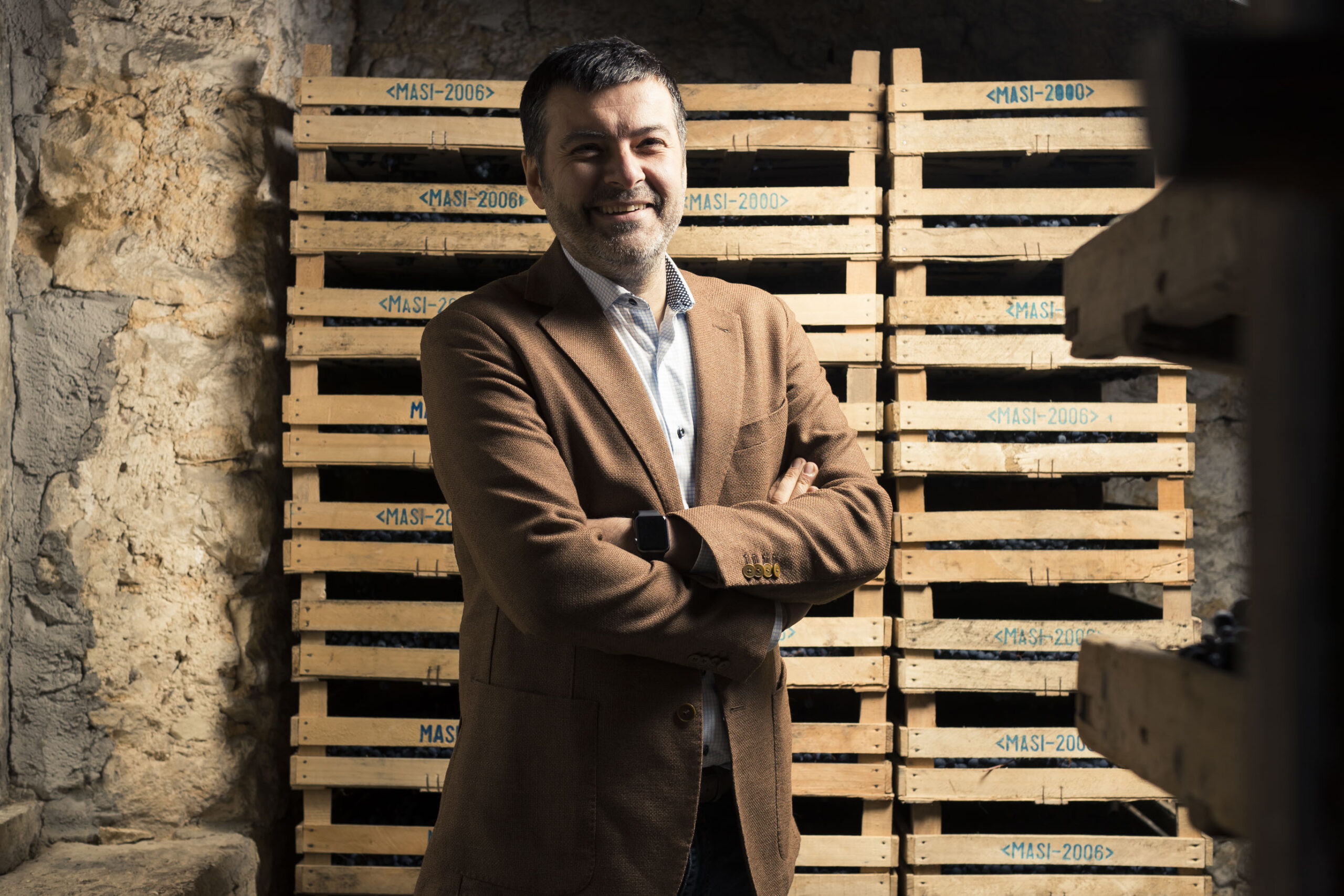
Raffaele Boscaini is the seventh-generation flagbearer of Masi Agricola, one of the Venetian region’s and Italy’s most revered winemakers, famous for its outstanding Amarone wines and a wider array of fine sparkling and table wines. Since its foundations in 1772, Masi has faced many crises, among which the COVID-19 pandemic ranks among the most severe and sustained of modern times. The Moodie Davitt Report Chairman Martin Moodie caught up with Boscaini, who was recently elected as President of pan-industry group Confindustria Verona, to discover how the company has adapted to a world that has been traumatised on the one hand but which, he insists, has accentuated its love for wine on the other.
Raffaele Boscaini admits that the COVID-19 pandemic hit the Verona wine region hard but he believes not only that the worst is over but that, perversely, some good has come of the crisis. The wine industry was affected in multiple ways, he explains, starting from the vineyards and running through to wine sales to the trade and the especially debilitating impact on the on-trade sector.
“In the trade, of course, it was really a mess,” he says. “Seeing COVID spread all over the world meant at first that you couldn’t sell. They couldn’t sell and you couldn’t sell to them and so at one point everything stopped.
“But the one thing we can say is that nature is nature and things were rolling even during the lockdown. So, of course, things were happening in terms of the flowering, the bud breaking and so on. On that side, we were able to go and work in the vineyards, so there were no problems. It was actually a very nice spring [in 2020] and we had a very good result in the end. In the cellar, it was pretty much the same, all the steps were done.”
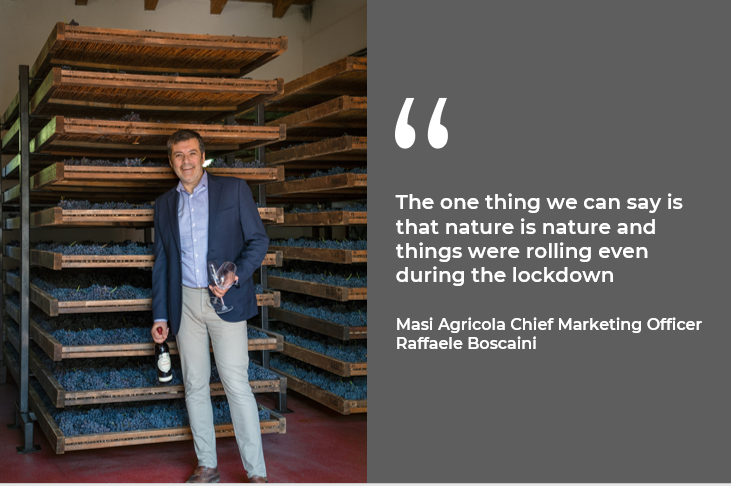
Reduced sales meant an increase of stockholdings but for Masi, which has been aging its great wines throughout its history, this was nothing new. The company reacted to the crisis in two key ways. Firstly it stepped up its direct sales activities, trying to convert missed sales through an enhanced online push, for example. Secondly, Masi decided it should play a positive and supportive role in helping the trade alleviate the worst effects of the pandemic.
| Masi Group in profile With its roots in Valpolicella Classica, Masi produces and distributes Amarone and other premium wines inspired by the values of the Venetian territories. The use of native grapes and autochthonous methods, and the research and experimentation carried out by its Technical Group, make it one of the most famous producers of high-quality Italian wines in the world. The Masi story began in 1772, when the Boscaini family acquired prestigious vineyards in a small valley called Vaio dei Masi, which is the origin of the company’s name. The company is still in family hands, run by the sixth and seventh generations. A benchmark in the art of producing Amarone at a world level, Masi constantly innovates and passes on its expertise in the Appassimento method, which has been practised since the time of the Ancient Romans. Masi also owns the organically run estates of Poderi del Bello Ovile in Tuscany and Masi Tupungato in Argentina. |
“We are in a [traditional] supply chain, so we said let’s take our customers by the hand – restaurant owners, wine shop owners and so on – and support them both in terms of financial and moral support,” says Boscaini. “We were trying to keep them happy, to keep them motivated.” Masi unleashed a wave of communication activities via social media, for example a well-received initiative to promote the attractions of restaurants all over Italy in an effort to hasten recovery when conditions eased.
“The restaurants really appreciated that. Everybody is in the same boat as we say here,” Boscaini comments. “Business-wise, of course, and this is more a generic rather than just Masi statement, we all needed to find ways of trading wine. For example, we developed our supermarket business and this had a permanent effect that we can still appreciate now. We saw during the crisis a big increase not only of the quantity of wine sold in the supermarkets but also the quality level, which was a surprise.
“So the supermarket chains started to sell wines that normally they would not have. Higher-end brands, more new brands and so on – the products you normally find in restaurants. And if at the beginning it was a concern for these kinds of brands to be on the supermarket shelves rather than to be in the restaurants, nowadays, I think that they are all happy.”
In fact, Boscaini says, the development simply represented the breakdown of a system that was not really logical in the first place. There is no problem with a wine selling for a certain price in a supermarket and a much higher one in a restaurant he argues. “People don’t complain. It’s normal. Previously, there were these sort of unwritten rules that said if you are there [in a fine restaurant] you cannot be there [in a supermarket]. Now, at the end of the day, we are all happy. The consumer across the world can enjoy their bottle of Champagne at the restaurant, paying the right price, while also being able to buy a bottle from the supermarket shelf.”
He welcomes that democratisation of wine drinking, commenting, “I think that many aspects of this COVID situation simply accelerated things that were happening anyway but tended before to take a few years. Now they took just a few months.”
While online business remains relatively small for Masi, the company has used the crisis to focus much more closely on the ecommerce opportunity. “It’s clearly showing the way forward for the wine trade, not just for the consumer but also for the restaurateurs,” says Boscaini, noting that the latter can now limit their capital tied-up in cellar holdings by being able to make small, more frequent orders.
Boscaini believes that Masi’s combination of very strong family traditions on the one hand and an ability to reinvent itself and innovate constantly on the other helped it emerge strongly from the crisis. The pandemic also accelerated plans that were already in the works, he says.
“We were in the process of designing some new products – more natural wines, shall we say, in terms of production. The crisis accelerated our work. So last March we introduced Fresco de Masi, red and white. The grapes are organic, harvested during the coolest hours and immediately vinified, without drying and without the wine being aged in wood. The grapes are decanted and not filtered. All the elements that are not necessary in the wine have been eliminated, including the capsule.”
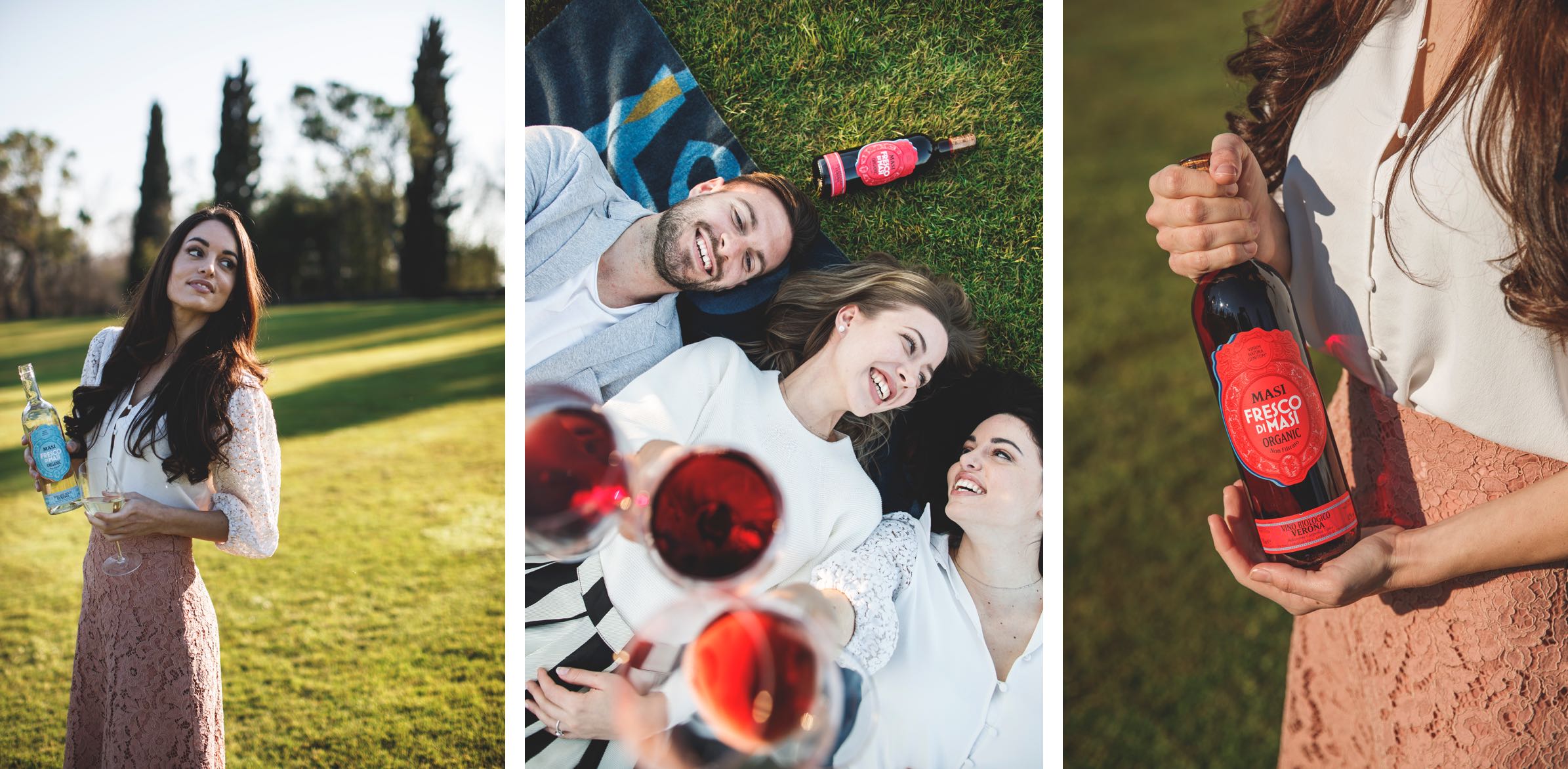
At the time of Fresco de Masi’s launch earlier this year, Boscaini said: “The idea of Fresco di Masi stems precisely from this: Sincere wines, focused on genuineness; simple like once upon a time but as good as we expect today. We have sought out the shortest route from the vine to the glass, ‘grapes-must-wine’, and obtained moderately alcoholic wines characterised by an immediate palate of fresh fruit.”
 Or, put another way, “It’s just wine,” as he says. “Just crushed grapes delivered to you and the wine is very light, very refreshing and crisp. I always think of it as the wine of the farmer but it is very good. It’s the wine that really represents the moment that we are in now. I want to add authenticity. Be natural. Be yourself. And this is the answer that we gave to this moment in time.”
Or, put another way, “It’s just wine,” as he says. “Just crushed grapes delivered to you and the wine is very light, very refreshing and crisp. I always think of it as the wine of the farmer but it is very good. It’s the wine that really represents the moment that we are in now. I want to add authenticity. Be natural. Be yourself. And this is the answer that we gave to this moment in time.”
I remind Raffaele of a lovely 2014 interview with his father Sandro, who talked about “modern wines with an ancient heart”. And in Fresco di Masi that premise finds expression in a new style of wine designed to be aligned with a younger generation and today’s values, I suggest.
“Absolutely, but it’s still very much Masi,” he says. “It is opposite to the direction of Amarone where there’s a lot of work involved. The aging. Drying the grapes. And all the processing to create this big wine. Here we did the opposite, something simple that you can drink easily”
I ask Boscaini if he ever feels the burden of being the flagbearer for the seventh generation, a remarkable testament to the company’s enduring popularity and commercial resilience through the ages.
“I would say it’s more an honour and a privilege,” he replies. “Whenever I am asked, ‘When did you decide to be part of the family business?’ I always answer that I probably never decided but it’s something that simply grew within me – it became natural, right? Nowadays I feel blessed to have this possibility and I see it as a privilege to be the son of ‘Mr. Amarone’ [Sandro Boscaini]. Not everybody could say that, right? He has great vision that has really helped me a lot to open my mind in all directions.”
Although heavily influenced by his father and the company’s traditions and values, Raffaele Boscaini is very much his own man. So how would he describe his personal philosophy to wine and to business? The answer emerges as spontaneously and freshly as a newly poured glass of chilled Fresco di Masi. “In terms of both my professional and even my private life, I have developed the capability to have a quite pronounced human aspect. I’m very emotional. I get friendly with everybody all the time. I saw that for a long time as a negative element, a weakness almost. Nowadays I find it’s a great power for me.
“And it’s something that I really understood after my success in being elected as Confindustria Verona President. I understood that at the end of the day people need human competency rather than just technical competence. Technical competence, you will find along the way. But what is also important is human knowledge of life rather than only the knowledge of things. This is probably my philosophy with people both inside and outside the company.”
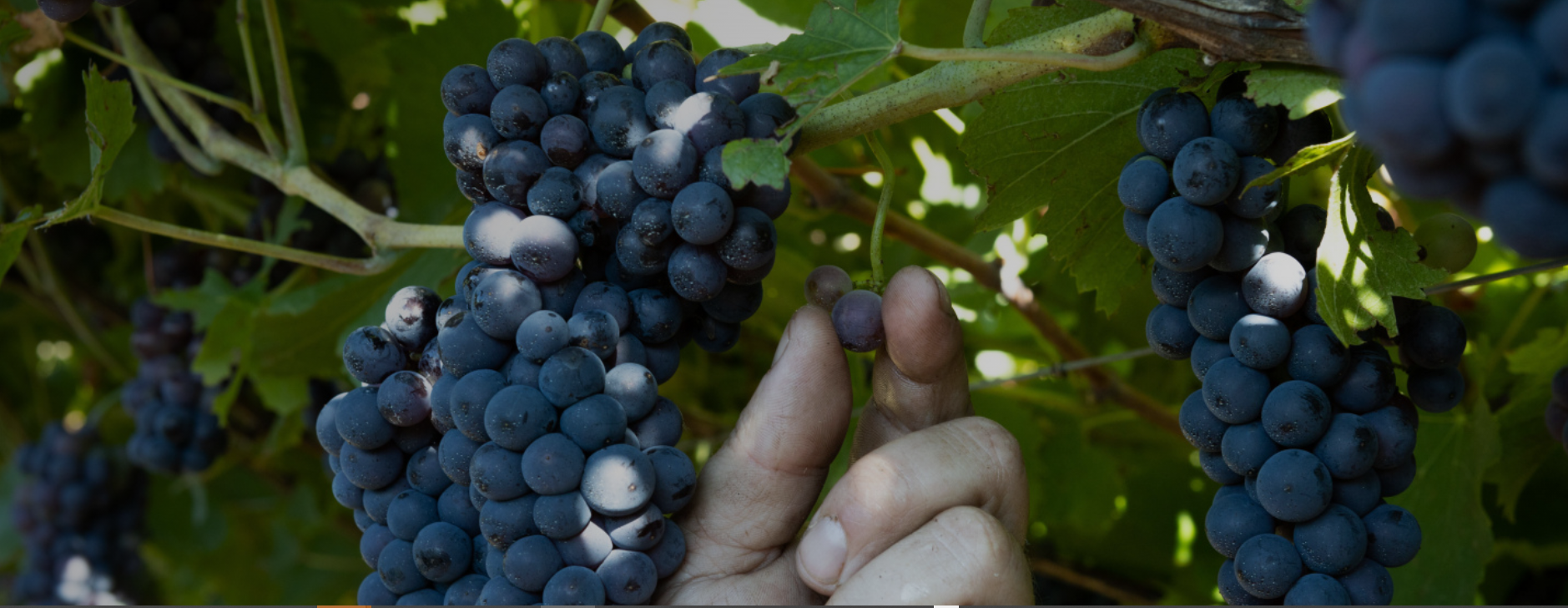
We fast forward from the problem of 2020s to the emerging recovery in 2021, a year that looks like being an excellent vintage for all Masi wines. “Of course there are some difficulties, some headaches here and there,” says Boscaini of overall prospects. “But looking at the results, we have been growing now six months in a row – in fact growing in most months over 2019, so we are really doing well. I think that this is due to not just how we manage the situation, but to the position that Masi has gained over 250 years of history.”
He tells a revealing story about when Masi recruited someone to create a Facebook presence around 11 years ago. “We were actually one of the last into it but we immediately got incredible success,” he recalls. “And I remember saying to the woman who created it for us that though she did a great job, it was also because of 250 years of communication that went before. You cannot create things like a successful website if there’s not something already in the mind of the people so it will flower immediately. Otherwise, it can’t.”
The same principle applies to restaurants which have reduced their inventory through the crisis, Boscaini says. The owners will return time and again to brands and partners that they have trusted for years, such as Masi.
Travel retail: Storm-tossed but clearer skies ahead
Masi has been one of the most influential and successful wine companies in travel retail over recent years. Inevitably then, a lot of hard work was compromised, albeit temporarily, as the market went into freefall in 2020 and only now begins to show promising signs of life. Is the company’s long-term commitment to travel retail as strong as ever?
“Of course,” replies Boscaini. “Travel retail really saw a big impact for us [since the crisis began] since it represented around 10 percent of sales. Of course, there’s nothing you can do when planes are not flying and the duty free stores are totally locked up. What could my friends at Heinemann, for example, or other operators do? Nothing.
“Nevertheless, now the people are starting to travel again. You can see it more and more, week by week, more flights, more openings and so on. And I’m sure that you will see – as we have already seen in some touristic destinations – a sort of spring effect, and then a boom. It happened here, for example, in Venice. We were compressed. And then one day, boom!
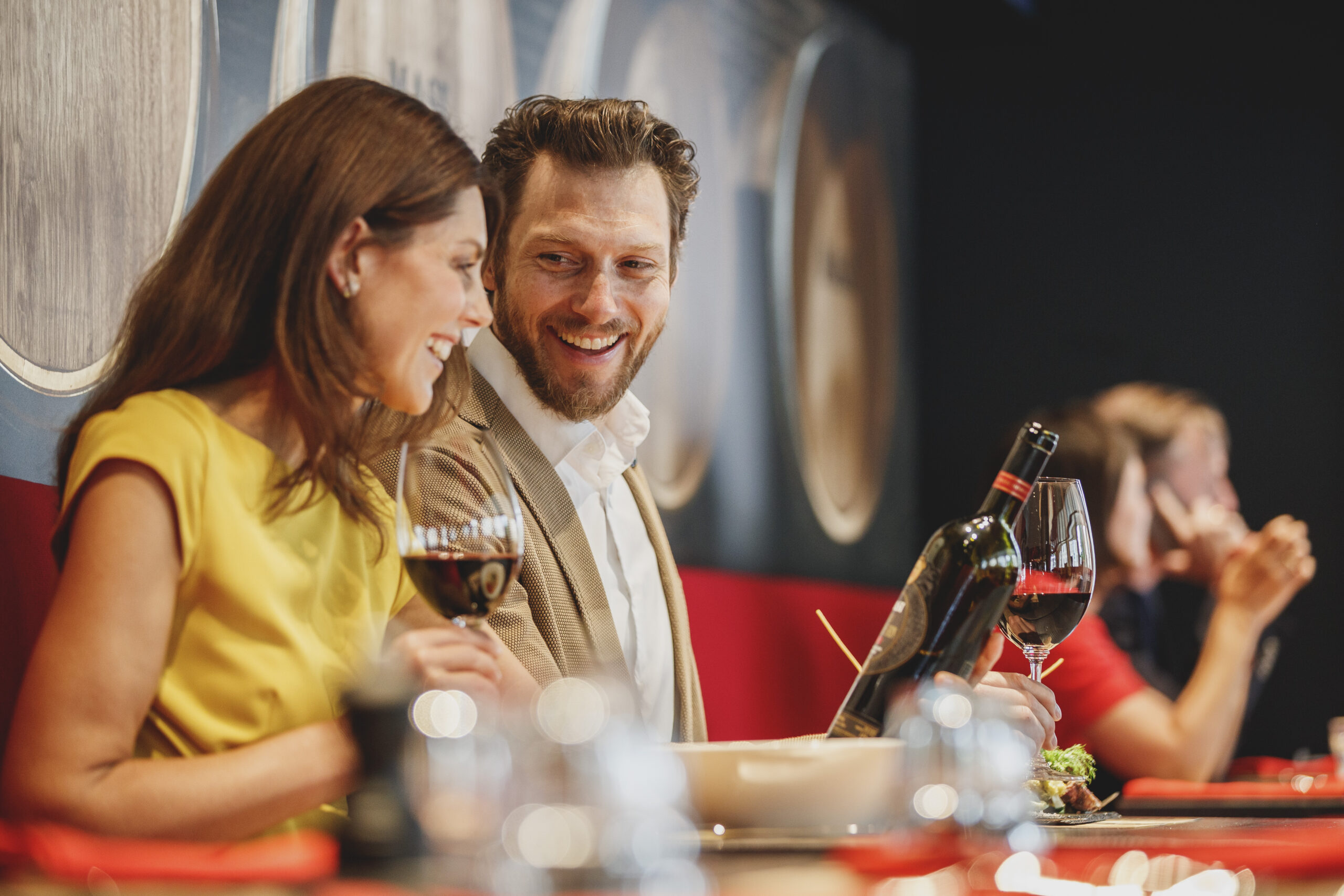
Outside of travel retail things look better. “At the end of the day, if we consider the economic crisis related to COVID I don’t think it has actually been that devastating. I don’t see in Italy or other countries in Europe that the economic activity has really been hindered. Of course there were months of lockdown, but at least there were a lot of cost savings by people. Of course there was some effect with the curbed activity, particularly the restaurants and the hotels that were closed, but now there is more life.
“I think there will be this bounce effect in travel. People will say, ‘Ok I stopped for a year, a year and a half, two years of travelling. Now I can travel and I need to get back to normal. So I saved X amount of money, let’s buy one more bottle of whisky, or stay two days longer or take a first-class flight rather than economy, or whatever.”
Underlining the company’s confidence in the future and willingness to back that sentiment with investment, Masi opened a new food & wine bar called The Masi Wine Experience in Munich this June. Sited in the famous Campari Haus in Maximilianstraße – an exclusive luxury shopping street dotted with elegant 19th century buildings – The Masi Wine Experience combines Italian social living with appreciation for good food and wine in a refined and glamorous setting.
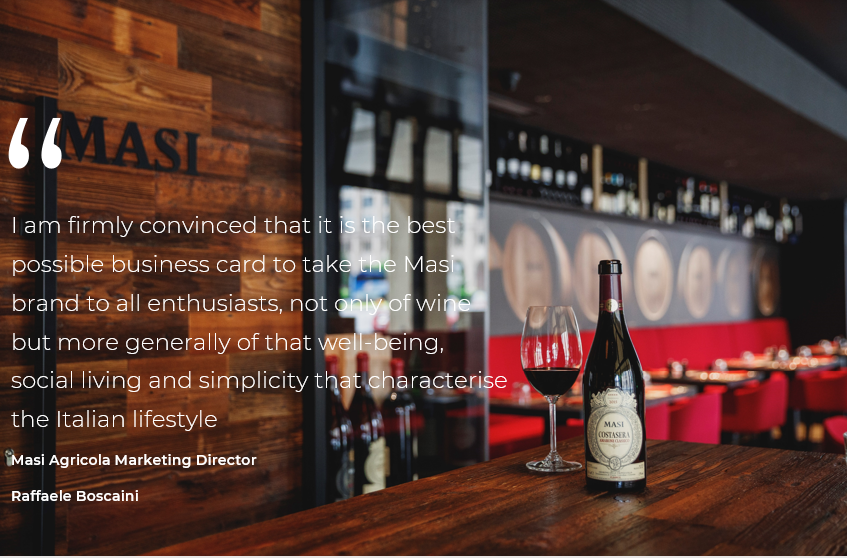
“It is a way to be close to the consumer in order to deliver our message directly rather than to always go through the steps of the distribution and the supply chain,” says Boscaini. “It is very well located on the Maximilianstraße, which is the street for all the big international big brands but importantly for me, where at least 60 percent are Italian brands from fashion, luxury and so on. And at the end, in the little square, there is our Masi Wine Bar, for spreading our word, our message, our brand. All the wines inside are, of course, from Masi.
“This is a place for enjoying the quality of life and let’s say the Italian and Venetian style of good things made in a simple way but with the international vision. It’s working very well because of its strategic position and because of the knowledge of the brand.”
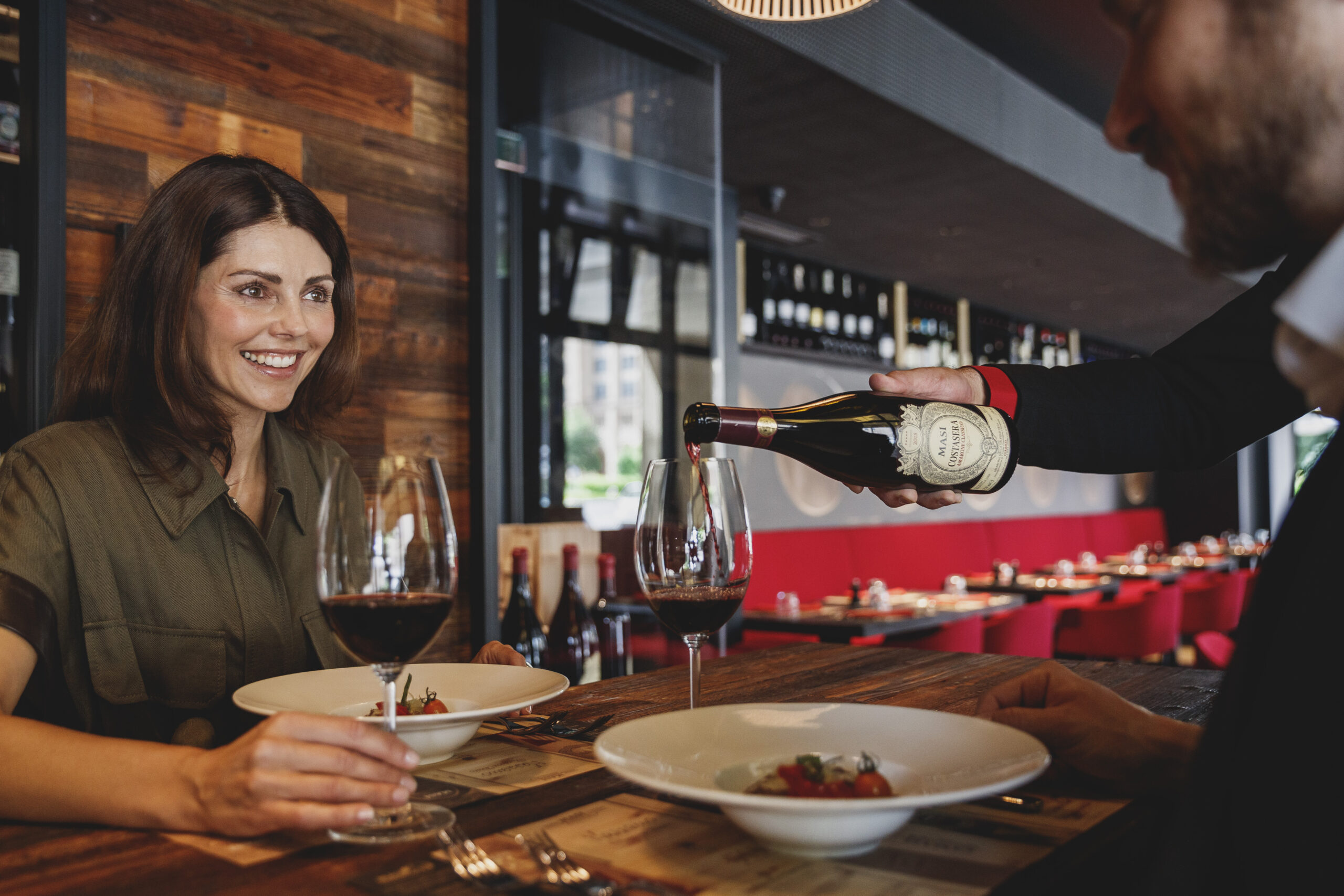
Boscaini describes the Munich project as “the third leg of growth” that the company promised investors six years ago at the time of a partial public offering (the Boscaini family still holds 73.5%), when some 19% of shares were made available through a capital increase.
The first leg was the anticipated (and since realised) organic growth across multiple world markets; the second being acquisitions, something duly delivered via, for example, with its 2016 investment in Canevel (pictured below), the much-respected producer of high-class sparkling wines under the Registered and Certified Designation of Origin Valdobbiadene Prosecco Superiore DOCG.
 Boscaini says that the company hopes to open at least one new Masi Wine Experience a year, based around three different formats – a white tablecloth restaurant, a bistro, or a simple but elegant wine bar with cold cuts and cheeses. Excitingly, Masi is considering airports, which though demanding in operational terms offer high potential foot traffic.
Boscaini says that the company hopes to open at least one new Masi Wine Experience a year, based around three different formats – a white tablecloth restaurant, a bistro, or a simple but elegant wine bar with cold cuts and cheeses. Excitingly, Masi is considering airports, which though demanding in operational terms offer high potential foot traffic.
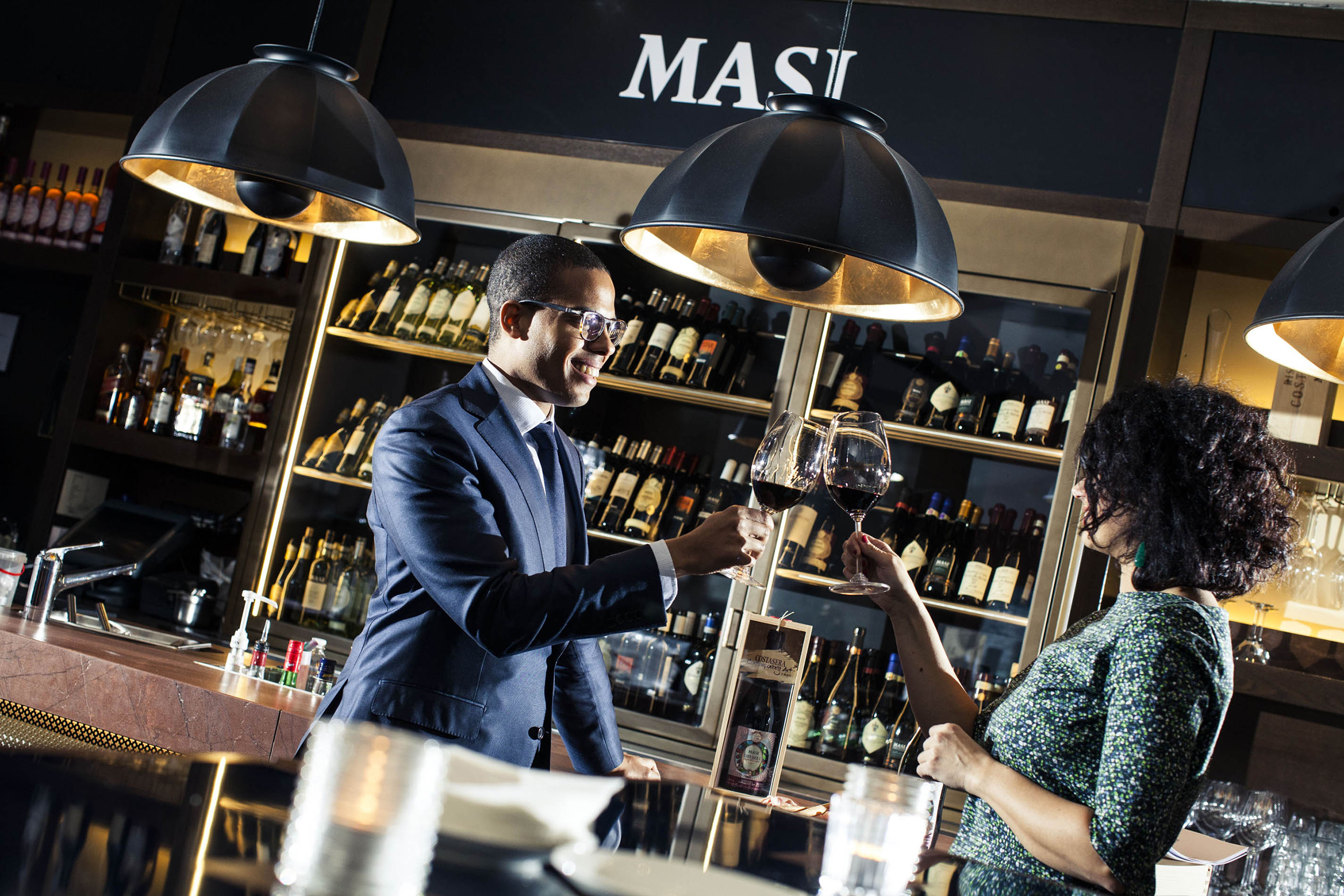
While Raffaele personifies generation seven of this venerable wine-making family, I ask him about generation eight. I remind him of a lovely interview with Grape Collective back in 2014, when he related the story of how he had been driving his young daughter Matilda to school with a friend whose father had allowed them to taste a wine. Her friend said that the wine was “too strong”. But Matilda retorted knowledgely, “No, it was more intense.’’
He takes up the story: “She has a great palate. These days she’s 17 and growing up beautifully. She’s a dancer, great at school and so on. She’s interested in many aspects of my work in the world of wine, but so far as a spectator.” His 12-year-old son is already intrigued by the company and the fascinating global world that his father inhabits. “He’s quite interested, and he loves to believe that he’s part of it.
“Once, a few years ago, we jumped in a taxi in Verona. He asked the driver, ‘Oh Sir, do you know Masi?’ And the guy said, ‘Yes, you mean the wine company?’ My son replied, ‘Yes, I know, my father is working there and my grandfather is the owner.’ He was so excited about that!
“But I remember the words of my own father after I had grown up a little: ‘Raffaele, do whatever you want in your life as long as you are happy. There’s nothing worse than doing something that you don’t like. So be free in whatever, do whatever. Be a policeman, a fashion designer, whatever; but be happy.”
In the end Raffaele Boscaini became, like his father and all those generations that came before him, an out and out wine man. And in the process helped make not only himself happy but also countless wine consumers all around the world.


